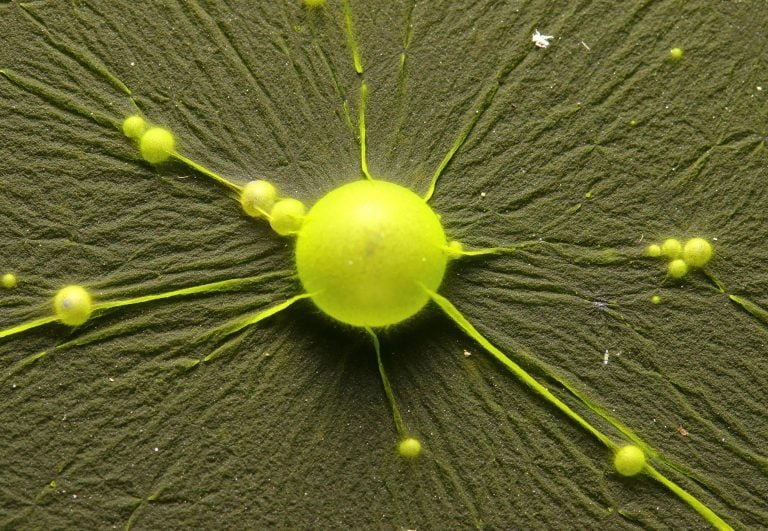A Breakthrough Discovery for Bioproduction and Carbon Sequestration
Scientists have discovered a new algae strain, “Chonkus,” that excels in carbon sequestration and biomanufacturing. Isolated from volcanic vents off Sicily, Chonkus thrives in CO2-rich environments and settles rapidly, making it ideal for industrial applications and environmental carbon reduction.
Key Findings:
- Chonkus grows densely and settles quickly in CO2-rich waters
- Ideal for carbon sequestration and bioproduction
- Thrives in warm temperatures, high light, and high CO2 conditions
The Discovery:
An international research team collected water samples from shallow volcanic vents off Sicily and isolated Chonkus (UTEX 3222) in Boston. This cyanobacteria strain outperforms existing strains in:
- Growth rate
- Carbon capture
- Settling velocity
Implications:
- Sustainable biomanufacturing of valuable compounds
- Enhanced carbon sequestration for environmental benefit
- Potential breakthrough in decarbonization efforts
Expert Insights:
“Chonkus has several traits that could be useful to humans, including highly dense growth and a natural tendency to sink in water.” – Max Schubert, Ph.D.
Reference:
Applied Environmental Microbiology [include study title, authors, publication, and DOI]
Related Articles:
- The Future of Carbon Capture: Algae-Based Solutions
- Bioproduction and Sustainability: The Role of Chonkus
- Uncovering Nature’s Secrets: Breakthroughs in Algae Research
Share Your Thoughts:
How significant do you think Chonkus could be in the fight against climate change? What potential applications do you see for this algae strain?

















